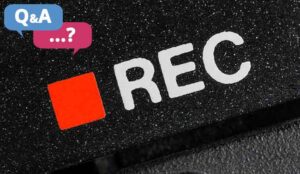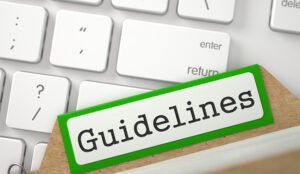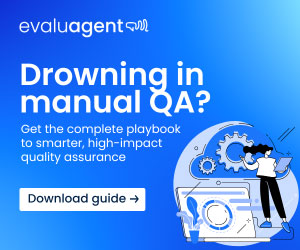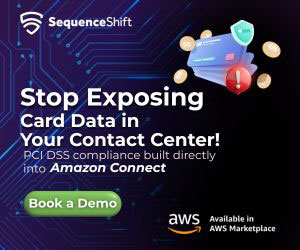Call Recording – When You Must?
I know this question gets asked a lot (even by me).
We are about to change the way in which we take payments. We are now going to accept the setting up of direct debit mandates over the phone as well as normal CC and debit card payments (over the phone). Are there any regulations we must comply with, such as voice recording ?
Question asked by Paul
Hope This is of Help
Guidelines on Legalities of Recording Calls
Recording Employees
Earlier in 2003 there were some major amendments to the Data Protection Act**, in particular, in relation to the monitoring of employees and recording of information, be it data, video or voice. Organisations doing this must now let employees know they are being recorded before doing so. Legally you must make available telephone lines, which are not recorded, available for employees to make private telephone calls (these can be pay phones). Good practice guidelines advise that you tell employees why you are recording them.
Recording Customers
The organisation must put in place a process whereby every customer is notified that his or her call may be recorded and what the purpose for recording is, prior to the telephone conversation is taking place.
For incoming enquiries, many organisations insert a notification into the IVR system, as this ensures that every caller is notified. The phrase: “Your call may be recorded for training or monitoring purposes” is most commonly used, because it notifies the caller that they may be recorded and tells them for what purpose. Equally, recipients of outbound calling must also be notified at the beginning of every conversation, to give the person opportunity to object.
Some organisations notify customers through adverts and literature. This is not required or ideal, as it cannot guarantee that every caller will see it before calling.
Record-on-Demand
The same principal, the agent must advise the customer that they are about to be recorded, before hitting the record-on-demand button. They should not record any call without notifying the customer first, no matter what the circumstances (i.e. if the customer is irate).
**Recording guidelines are detailed in the 1st Principal of the Data Protection Act, entitled:
Fair and Lawful Processing.
With thanks to John
Recording
“Your call may be recorded for training or monitoring purposes”
It might be better to say “”Your call may be recorded for training or security purposes.”
That removes any ambiguity if you need to use it for dispute resolution later
Also as far as notification goes. As long as it says on your paperwork you record calls it’s OK. However from the point of view of the “I never saw that”. You can only guarantee you are 100% safe if you have it as an inline announcement.
Oh and remember to start with. “Welcome to xxxxxx company”, rather than
“Thank you for calling xxxxxx company”. That way it doesn’t sound like the
customer has hit an Answering machine straight away.
With thanks to Dave
Paperless Direct Debits
I haven’t done anything with DD’s in a couple of months, so please excuse me if my memory is a little rusty.
As far as I can remember, there is no obligation to record the calls. However, the onus is on you to prove that the direct debit was requested in the event of any confusion and therefore it may be in your interest to do so.
If you don’t have the space (or the housekeeping inclination) to record all calls there’s a few tricks you can use to record only the DD calls.
Ideally you want to get hold of a copy of the “Originators Guide” which has all the information you require. It doesn’t make very interesting bedtime reading, but it’s important to ensure that you’re doing it right as the rules for paperless direct debits are a lot stricter than for mandated DD’s. For starters, the originator (the account where the money will end up) has to complete an extra indemnity form, and the sponsoring bank will require more information. It’s important to get this paperwork done well in advance.
I can’t remember if you require a new OIN for paperless, or if the old one can be converted.
A couple of the other paperless rules that I can remember:
1) Paperless DD’s cannot be made for accounts with more than one signature, which includes business and joint accounts. This is an important rule and should be built into your script. In this case a mandate must be posted to the customer.
2) There are more questions that must be asked, and statements that must be read. These are all in the Orignators guide.
3) A customer must have the option to fill in a mandate if preferred.
4) Customers must be written to after the call to confirm payment amounts and date. The text for this letter is quite strict, and most sponsors like to check this before allowing you to go live. The wording of this letter is especially important if you intend to process variable DD’s.
5) All account details must be modulus checked before submitting a DD setup. You should really try and do this at time of call to reduce callbacks. Modulus checking does not confirm the account is live and accepts DD’s, just that the sort code and account number combination are valid. A way around this is to use an on-line bureau that can check for you if the account accepts DD’s. This will further reduce callbacks.
5) DD’s taken on websites are considered to be paperless.
There are many more rules than this…these are the few that popped into my head.
There are three main methods of submission for paperless DD’s. (1) Sponsors will provide software for you to use, although this is often pricy. If you want to integrate with your call handling app then you can either (2) link direct to BACS or (3) use an accredited BACS bureau. The latter is best as it circumvents the need for accreditation testing which is lengthy.
If you are processing the DD’s yourself then there’s a few other rules to be aware of regarding DD setups and drawdowns, but a bureau should be able to help you with these. It may be worthwhile getting in a professional to help, as getting the banks to move quickly can be very hard work.
With thanks to Darryl
AUDDIS
AUDISS = Automated Direct Debit Instruction Service
For paperless direct debits in the UK this is a must have, and involves an audited registration process.
With thanks to Dylan
Internet Resources
Good link Dylan – I don’t suppose you know if there’s an Originators Guide online anywhere?
If you use a bureau (Such as Datacash or Eiger) they’d deal with the AUDDIS side for you which cuts out some of the registration process.
With thanks to Darryl
Author: Jonty Pearce
Published On: 12th Apr 2022 - Last modified: 3rd Oct 2025
Read more about - Call Centre Questions, Call Centre Answers




































